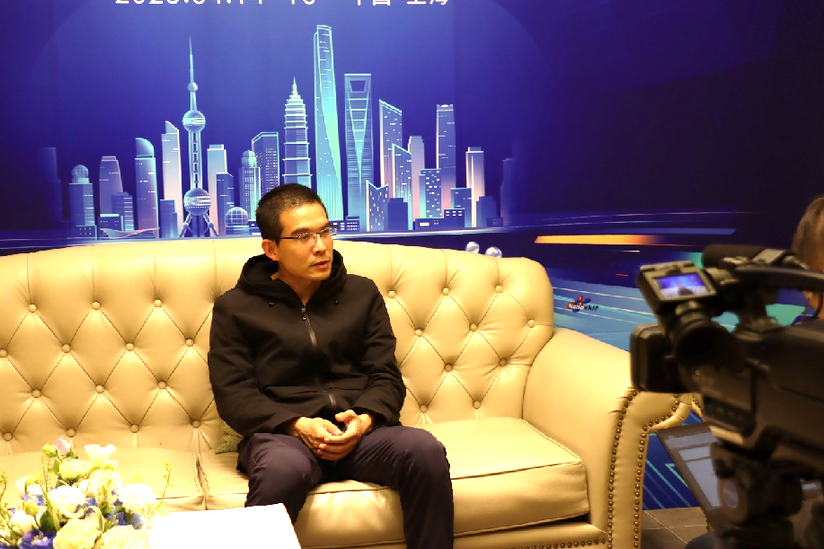PostTime:5/14/2023
Recently, Xinhua News, China's most influential national media, interviewed Dr. Wang Nan, Associate Professor of Guangdong Technion – Israel Institute of Technology (GTIIT) Materials Science and Engineering Program, about the future development of China's industrial software. Dr. Wang pointed out that the integration of different disciplines is vital during the process of breaking through the bottleneck from the perspective of talent cultivation. Below is the translation of the interview dialogue.

Xinhua: What changes have taken place in China's basic research environment?
Dr. Wang: The environment for basic research in China has changed dramatically compared with that ten years ago. The development of discipline and industry for basic research were not ready at that time. Particularly from the perspective of industry, not many local enterprises would sponsor basic research. With continuous industry upgrading, the conditions for China's basic research have been significantly improved, and an increasing number of talents engaged in basic research have returned to China from abroad.
I think the next emphasis is to transform basic research to industry. It is not easy to promote the integration of industry, education and research. The development and upgrading of China's industries will provide more opportunities for our basic researchers to commercialize their scientific and technological achievements.
Xinhua: How to break the industry's bottlenecks of China's industrial software?
Dr. Wang: From the perspective of multi-scale simulation software, there is still a gap between China and other leading countries. To break the bottleneck, I think we should first solve the problem of talent shortage challenges.
In terms of teaching and research in universities, some universities have made an attempt of discipline integration by combining the courses of computer science and instrument science, to explore a new way to cultivate talents.
Computer Science program has been regarded as beneficial. From researcher's perspective, I can see the trend of integration between computer science and other sciences or industries. China's software enterprises need to fit the industrial needs, to cultivate the industry experts with software engineering expertise. That's why I say cross-disciplinary research or the integration of different disciplines is increasingly important.
Xinhua: How to promote collaborative development of industry, education and research?
Dr. Wang: As a researcher, I would say basic research comes first. In fact, the commercialization cycle of basic research is quite long and most of them could not bring benefits in the next five or ten years. China's industry upgrading will certainly bring more transformation opportunities for basic research. Therefore, research should first focus on the basic research, which matters in the coming 30 years or longer.
The second is to build an open platform for collaboration between production, education and research. Take materials science as an example, the industry may need a large number of software developers to develop and support the construction of scientific research software platform. Different research groups can also join in the development of the platform based on their research direction. In this way, we can form a relatively complete industry ecology.
Scholar's Profile
Nan Wang received his Ph.D. in Physics from Northeastern University (U.S.A.) in 2011 and worked as a postdoc in nuclear engineering and materials science at Purdue University and The Pennsylvania State University. He was a research associate in the Center for Physics of Materials at McGill University (Canada) before joining GTIIT.
Prof. Nan Wang’s research focuses on understanding defects and interfaces related materials behavior using theories and computational methods. He has accumulated expertise in materials science, thermodynamics, condensed matter physics, programming and numerical methods from his interdisciplinary experience. His works have been published in top journals in both materials science and physics. Currently, he is working on computational microstructure optimization for 3D printed alloy materials, structural evolution and stability of nanoelectronic devices.
Text/Photos: GTIIT News & Public Affairs
© GUANGDONG TECHNION-ISRAEL INSTITUTE OF TECHNOLOGY | 粤ICP备17036470号
